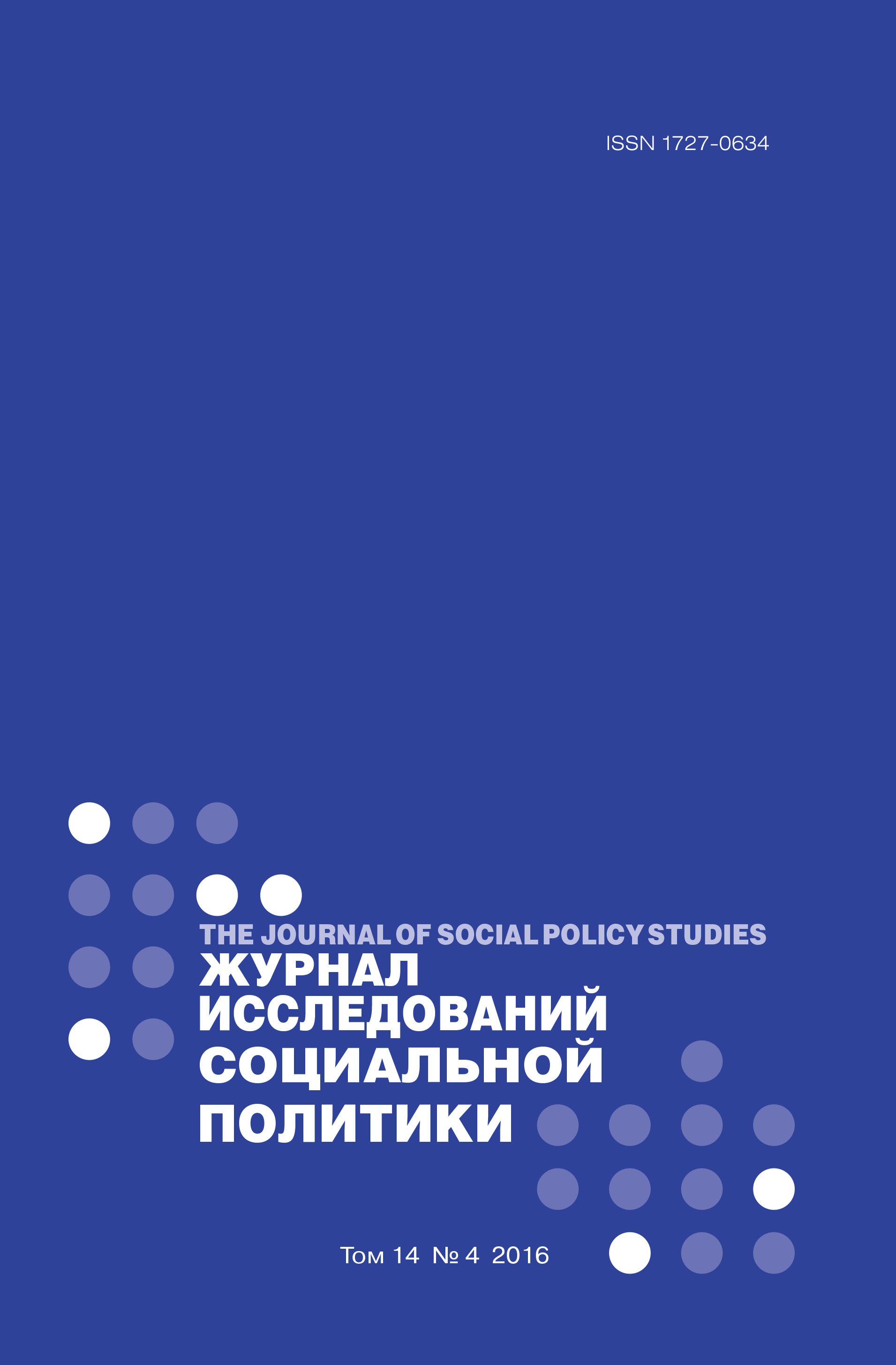Representing Interests and the Crafting of Social Policy: Viewing Russian Veterans’ Organisations as Brokers between State and Society
Keywords:
social policy, veterans’ organizations, clientelism
Abstract
This paper investigates how veterans’ organisations defend the social rights of their members and represent their interests at the regional level in Russia. It is important to mention that we are examining these phenomena under conditions where civil society is under some degree of pressure from the Russian government, which prefers to view these organizations mainly as social service providers and assistants of the state. We view these organizations as interest groups because they unite ordinary citizens sharing a common identity and a willingness to pursue perceived common interests, which is achieved, among other things, by bargaining and making deals with politicians. Concepts of brokering and clientelism are applied to the study of veterans’ organisations in Saint Petersburg and the Republic of Karelia. In providing mediation between ordinary people and politicians, brokers regulate the exchange of resources between them. On one hand, politicians obtain information about the needs and interests of a given interest group. On the other hand, citizens obtain personal rewards, such as support in defending social rights and acquiring social benefits from the government. In return, politicians can expect electoral support. Existence of this type of patronage exchange is usually taken as evidence that a political machine is active within a given community. Employing ‘political machinery’ as a theoretical framework revealed much about the specific role brokers have as moderators between ordinary people and politicians. The empirical analysis of this article is framed by comparative study of two cases that demonstrate how political and socio-economic contexts can account for the evolution of patronage exchange. While in St. Petersburg personal rewards are flourishing, in the Republic of Karelia such things are increasingly a thing of the past. Generally speaking, the empirical evidence of this study demonstrates the importance of patronage networks in framing social policy at the sub-national level in Russia.Downloads
Download data is not yet available.
Published
2016-12-13
How to Cite
ТарасенкоА. В., & КулмалаМ. (2016). Representing Interests and the Crafting of Social Policy: Viewing Russian Veterans’ Organisations as Brokers between State and Society. The Journal of Social Policy Studies, 14(4), 551-568. Retrieved from https://jsps.hse.ru/article/view/3251
Section
ARTICLES IN RUSSIAN















